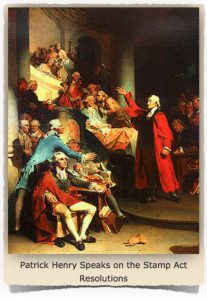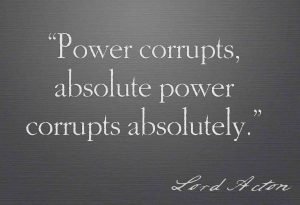“Miserable is the lot of that people whose every concern
depends on the WILL and PLEASURE of their rulers.”
– Dissent of Pennsylvania Minority
In the article, Under the Guidance of an Arbitrary Government, I mentioned the anti-Federalists and I have received several questions about their ideas. Aside from, “Who are those guys?”, I received many questions about the motivations of the anti-Federalists, and their recommendations during the Constitutional convention of 1787.
Today I’ll start a series answering those questions and I’ll show you the similarities between their positions and the mindset of today’s Tea Party patriots. The Federalist and the  anti-Federalists were both vibrant contributors to the creation of our Nation, our Constitution and our Bill of Rights.
anti-Federalists were both vibrant contributors to the creation of our Nation, our Constitution and our Bill of Rights.
Anti-Federalism refers to a movement that opposed the creation of a stronger U.S. federal government and which later opposed the ratification of the Constitution of 1788. The previous constitution, called the Articles of Confederation, gave state governments more authority. Led by Patrick Henry of Virginia, Anti-Federalists worried, among other things, that the position of president, then a novelty, might evolve into a monarchy.
The anti-Federalists were the Tea party heroes of the day because they recognized the sublime, self-evident and universal truth of Lord Acton’s statement, “Power corrupts and absolute power corrupts absolutely.”
A Pulitzer Prize historian, Leonard W. Levy, notes, “The Framers and their supporters are known to us as the Federalists, and those who opposed ratification are the Anti-Federalists. The name Anti-Federalist was an opprobrious (shameful) epithet artfully fastened on those who opposed ratification by those who shrewdly called themselves the Federalists. (History is written by the victors.)”
The “victors” knew the power of propaganda in swaying the public mind. We see the same distorted and inaccurate clamor in today’s issues like “environmental justice”, “income equality”, or “a women’s right to choose.” The terminology or language of the debate is framed purposefully so that the opposite view automatically gets a negative sounding connotation. For example, the “pro-choice” position was chosen rather than the more accurate title “pro-abortion”. This makes those holding the opposing view sound tyrannical because they are against choice and freedom. When the stated position is positive, what is left but negativity?
Using the pamphlet, entitled “Dissent of the Minority of the Pennsylvania Convention” from December, 1787, as a sample we can see the clear articulation of sound anti-Federalist ideas.
The anti-Federalist believed in local governance and representation, just like today’s Tea Party. They accurately predicted these potential problems with consolidated power under the Constitution:
- “[M]ust necessarily annihilate and absorb the legislative, executive, and judicial powers of the several states”
- would produce, “one consolidated government, which from the nature of things will be an iron handed despotism”
- “The powers of Congress… are complete and unlimited over the purse and the sword, and are perfectly independent of, and supreme over, the state governments; whose intervention in these great points is entirely destroyed.”
Couple these well-warranted fears about state sovereignty with Jefferson’s dream of many thousands of small government jurisdictions composed of local communities and you can see the beauty of dispersed governmental power. With these historical insights we can understand why liberty-loving Americans are so disappointed with Speaker Boehner and the establishment Republicans in their efforts to consolidate more federal power under President Obama’s recent “CROmnibus” legislation.
As citizens, you and I are supposed to carry the ultimate authority. Our ability to have meaningful engagement becomes evermore diluted as federal consolidation diminishes our voices. Jefferson agreed. In his correspondence with Abigail Adams he admitted, “If ever this vast country is brought under a single government, it will be one [a nation] of the most extensive corruption; [it will be] indifferent and incapable of a wholesome care over so wide a spread of surface.”
The fears and questions raised by these Founders are the same ones I have today:
- Is the “majority” always right?
- How does the minority get represented when the majority is unwise and abusive?
- How will we ensure local authority vs. control from those in far distant cities?
- How do we hold those who have violated our trust accountable?
- Is there a “higher law” to which men are accountable?
Thoughtfully consider these questions and send me your comments.
Check in next time as we tackle more of the fundamental ideas voiced by the anti-Federalists and read their recommendations for our future.
